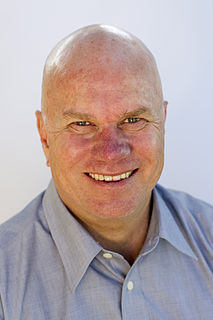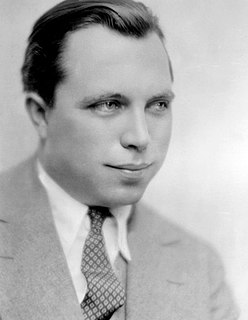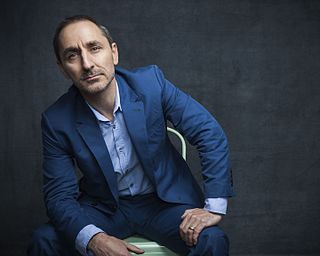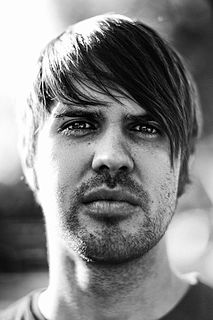A Quote by Jaron Lanier
Advertising is the edge of what people know how to do and of human experience and it explains the latest ways progress has changed us to ourselves.
Related Quotes
In fast-moving, progress-conscious America, the consumer expects to be dizzied by progress. If he could completely understand advertising jargon he would be badly disappointed. The half-intelligibility which we expect, or even hope, to find in the latest product language personally reassures each of us that progress is being made: that the pace exceeds our ability to follow.
I think the name came [of the show 'Gaycation'] out of the fact that a lot of people just don't know - they don't know what so many people face around the world or even in their own country, where there's a variety of experience, and despite the incredible progress we've seen, that progress hasn't necessarily reached everyone. I wanted to kind of have this title to have you be open to the experience, and then you enter it and you do see the realities.
A poem is like a person. The more you know someone, the more you realize there is always something more to know and understand. A final understanding could probably only begin upon permanent separation, or death. This is why we come back to certain poems, as we do to places or people, to experience and re-experience, to see ourselves for who we truly are, and to continue to be changed.
I have a personal staff that helps me scour the internet and other media for the latest scientific peer-reviewed findings, the latest examples of climate-related extreme weather events, and the latest examples of progress. The world is in the midst of a sustainability revolution that has the scope of the industrial revolution, but with the speed of the digital revolution. That's not enough without new laws and the right kind of political leadership. But it does give us a base from which to build a movement that will save us from the most catastrophic consequences of the climate crisis.
I had a friend who was the King's surgeon in England. One day I asked him what makes a great surgeon. He replied, "What distinguishes a great surgeon is his knowledge. He knows more than other surgeons. During an operation he finds something which he wasn't expecting, recognizes it and knows what to do about it." It's the same thing with advertising people. The good ones know more. How do you get to know more? By reading books about advertising. By picking the brains of people who know more than you do. From the Magic Lanterns. And from experience.
We see ourselves in other people’s eyes. It’s the nature of the human race; we are a species of reflection, hungry for it in every facet of our existence. Maybe that’s why vampires seem so monstrous to us—they cast no reflection. Parents, if they’re good ones, reflect the wonder of our existence and the success we can become. Friends, well chosen, show us pretty pictures of ourselves, and encourage us to grow into them. The Beast shows us the very worst in ourselves and makes us know it’s true .
In some ways, in the U.S. we don't know how to be. I think in a lot of ways America is about liberation and about change and progressive human relations. And because of that, I feel like that we're confused about who we're supposed to be and what it is that's supposed to satisfy us and make us feel fulfilled.
Yes, there may be some convergence to what you see on a screen that's different from the way you will experience a magazine in your hand, but there are lots of ways you can signal differences. Where native advertising and these other things get tricky is when the consumer can't tell the difference between edit and advertising.







































